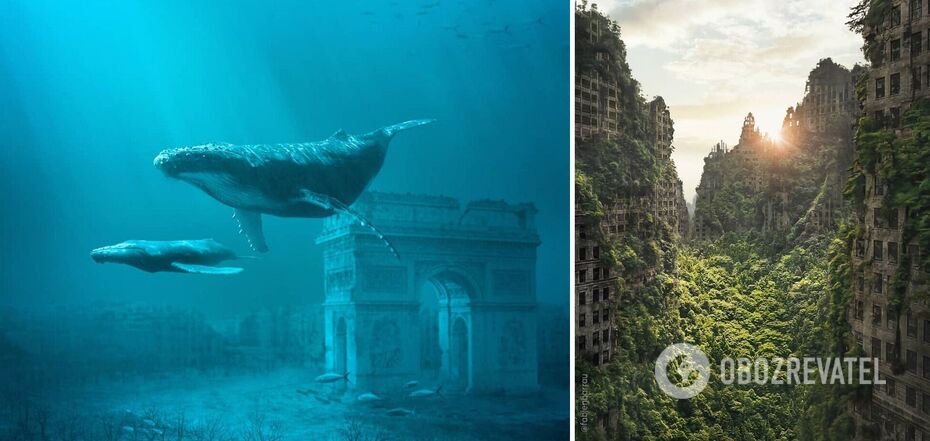Life
If all humans disappeared: what an Earth would become in a year of loneliness
If humans suddenly and for no reason disappeared from planet Earth, it would most likely turn into an animal and plant kingdom within a year. But cities, roads and other infrastructure, with few exceptions, would exist pretty much the same.
Carlton Basmajian, associate professor of community and regional planning, urban design, University of Iowa, wrote this in an article for The Conversation.
Silence and dust
According to him, the first thing that would strike the Earth without people is silence. If anyone were to enter such an orphaned planet, they would immediately realise how much noise people actually create.
"If people just disappeared and you could go back to Earth to see what happened a year later, the first thing you would notice would not be with your eyes. It would be with your ears. The world would be quiet," he wrote.
Basmajian explained that everything created by humans fills the world with noise that doesn't stop for a moment. It is not only about a variety of vehicles and factories, but even buildings made by people.
The second thing that would catch your eye would be that the sky would be bluer and the air would be cleaner, because all the factories that have been polluting the earth's atmosphere for years would stop working.
"Wind and rain would clean the surface of the Earth; all the smog and dust that humans create would disappear," he is convinced.
Electricity would also disappear, as there would be no one to maintain and feed the power plants.
Moreover, you would most likely not find a single drop of water in the tap. Basmadjian suggests that most underground pipes would not survive the winter, as standing water would freeze in them and cause ruptures. And water pipes do not work by themselves, so one way or another, centralised water supply is a thing of the past.
The scientist explains that if you went home, you'd be surprised at how much dust had collected there in a year. In real life, we do not notice dust as it is constantly being carried around by fans, air-conditioning systems and even draughts in the flat or house. People themselves also "kick up" dust (even when just walking around), preventing it from accumulating on all surfaces.
Animal and plant kingdoms
Plants will become one of the dominant species on Earth, as the only threat to them will be animals - the real dominant species. In a year, grass will not only have reached its maximum size but weeds will have taken root everywhere.
Cities may also see plants and trees unseen before, since no one will control their spread any longer.
Apart from the unheard of silence, there will probably be a constant sound, the nature of which will not immediately become clear. We are talking about hordes of insects, which, without human intervention, would proliferate like never before.
There would be an awful lot of small beasts on the streets. The first to dare, according to Basmadjian, would be mice, marmots, raccoons, foxes and others. The large forest animals would have braved the big cities a little later.
The night-time of the earth would also change dramatically. The only source of light would be the moon and the stars, of which there would be many more in the clear and dark sky. The nocturnal animals would also be greatly enlivened.
Domestic animals - such as cows - would become prey to bears and wolves, while cats and dogs would become feral.
The end of everything
Among the negatives are natural fires. Since no one will now control their spread, fires caused by lightning will occur more often and last longer before they burn out on their own.
Concrete infrastructure, the scientist is convinced, would look much the same. Roads, highways, bridges and buildings would begin to crack as a result of the movement of the earth's surface in about 10 years, and collapse even later. Subsequently, grass and even trees could simply sprout through the asphalt.
Metal infrastructure - such as bridges - would have rusted slowly, but could have survived for quite a long time, and in some situations for a century.
The dams that people built on the world's rivers and streams would have eroded.
The farmlands too would have reverted to the power of nature. Fields where corn, potatoes or tomatoes were grown would have been overrun by wild plants.
Looking further afield, according to Basmajian, signs of today's world would be barely recognisable in a thousand. Some buildings might have remained here and there, but that would have been just a fluke.
OBOZREVATEL also previously told what will happen when the Earth's rotation accelerates.
Subscribe to OBOZREVATEL channels on Telegram and Viber to keep up with the latest developments.



























